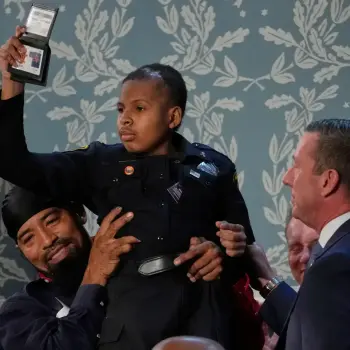As we contemplate the changes and challenges of celebrating Thanksgiving this year, any number of obstacles come to mind. Celebrating with immediate family only or limiting the size to ten people. Fewer travel options. Do we wear masks? What about social distancing?
Some may even consider just skipping Thanksgiving this year.
But its observance is required by Scripture: Give thanks in all circumstances; for this is the will of God in Christ Jesus for you (I Thessalonians 5:13). And not just for one day, but every day.
Reread that. Giving thanks is not merely a suggestion, it’s the will of God for all of us who believe. The original recipients of this letter faced disturbing challenges and crises. The deaths of some of their fellow believers caused questions and unrest. Paul recognized the propensity for them (and all of us) to be distressed, even afraid during such times.
Like many of us today, the believers at Thessalonica could have come up with a litany of reasons to NOT give thanks. Times were hard. Uncertainty was rampant. Fear of the unknown was dangerously high. But they would not be the only generation to face such dilemmas. Nor will we.
Paul knew that gratitude and thankfulness unlocked heaven’s power and protection for them— and us— in spite of circumstances.
This does not mean God expects us to give thanks for the death of a loved one, or for the loss of a job, or for financial crises brought on by the current pandemic. But during… in…all things continue to be grateful.
Luke 17 shines even more light on giving thanks in all things. As Jesus was heading toward Jerusalem to face the pain, the rejection and the distressing events surrounding the cross, he met ten lepers (v. 12). They stood at a distance shouting, “Jesus, Master, have pity on us.” Their circumstances included the isolation of quarantine due to an easily communicable disease and a life completely upended. Sound familiar?
Jesus did as they asked. He had mercy on them. Only a priest could declare them clean and allow them to reenter society, so Jesus commanded them to go and show themselves to the priest. And all ten departed in faith, and as they went, all were cleansed of the disease.
But when they experienced their cleansing as they ran, only one took the time to return to thank Jesus.
The one who stopped in gratitude was a Samaritan (v. 16) who had experienced rejection and isolation his entire life. To the Jewish mind, he was a half-breed, a moral and spiritual leper whatever his physical condition. Luke did not mention his status before because it did not matter until he became the only one to return in gratitude.
Why the one? Perhaps he did not feel entitled to the mercy from the Savior and accepted the gift of healing as one of grace which he did not deserve. Throughout the New Testament, Jesus elevates those whom society deemed lowly outcasts—tax collectors, prostitutes, shepherds, women, and children. The gospel was for all.
Jesus used this as a teachable moment: “Were not ten cleansed? Where are the nine? Was no one found to return and give praise to God except this foreigner?” (vv. 17–18). An inscription found on a block from the temple in Jerusalem reads “Let no foreigner enter within the screen and enclosure surrounding the sanctuary.” A foreigner who could not enter the temple of God could come to the God of the temple.
So, what can we learn about thankfulness from the other nine who did not return to our Lord with gratitude? Three lesson seem evident.
Self-sufficiency and entitlement are enemies of thanksgiving. In our story, the nine took the actions which led to their healing. They may have thought they deserved the healing due to their Jewish heritage. It’s easy to think that we have earned what we have, that prosperity is the result of our hard work. But it’s not so.
Do you deserve to have physical abilities and not challenges? To be born in America and not North Korea? To have parents who love you and don’t abuse you? To have the privileges and opportunities you enjoy today? When was the last time you thanked God for the circumstances and provisions you enjoy each day?
Busyness is the enemy of thanksgiving. Perhaps these neglectful nine were consumed with responsibilities, obligations and demands untended during their bout with leprosy. The healed lepers had much to do. They needed to be examined by the priests and readmitted to society. Then they had to find their families, begin life with them again, find work—in short, do all the things which would reinitiate life.
They were too busy to return and give thanks to Jesus. What they were doing wasn’t bad, it just wasn’t best. It’s easy for us to be the same way.
Spiritual ignorance is the enemy of thanksgiving. These newly healed nine got what they pleaded for but failed to receive the wholeness that results from an attitude of gratitude. In our text, only one was made whole (v. 19). The others missed all that God had for them. It was available but went unclaimed.
Depending on your Bible translation, the one healed leper who returned was pronounced well… whole… complete by the Lord after his authentic expression of praise and joy.
No matter how different this Thanksgiving is for our families, we all need a fresh glimpse of who God is and what he has done, is doing and will do. And when we see that, can any of us hold back doing what the Samaritan did? (vv. 15-16).
- He praised God with a loud voice
- He fell on his face at Jesus’ feet
- He thanked and credited him for the healing
When we enter God’s “gates with thanksgiving and his courts with praise” (Psalm 100), we come into his presence. When we are thankful, we recognize and submit to the Source of our life and blessings. We are empowered by his Spirit. And we manifest his love, joy, peace, patience, kindness, goodness, faithfulness, gentleness and self-control (Galatians 5:22–23.
An attitude of gratitude marks us as the children of God and enables him to use us more fully. We experience the wholeness of the one.
Jim Denison, PhD, is the founder of Denison Forum with a reach of 1.9 million. He also serves as Resident Scholar for Ethics with Baylor Scott & White Health.











